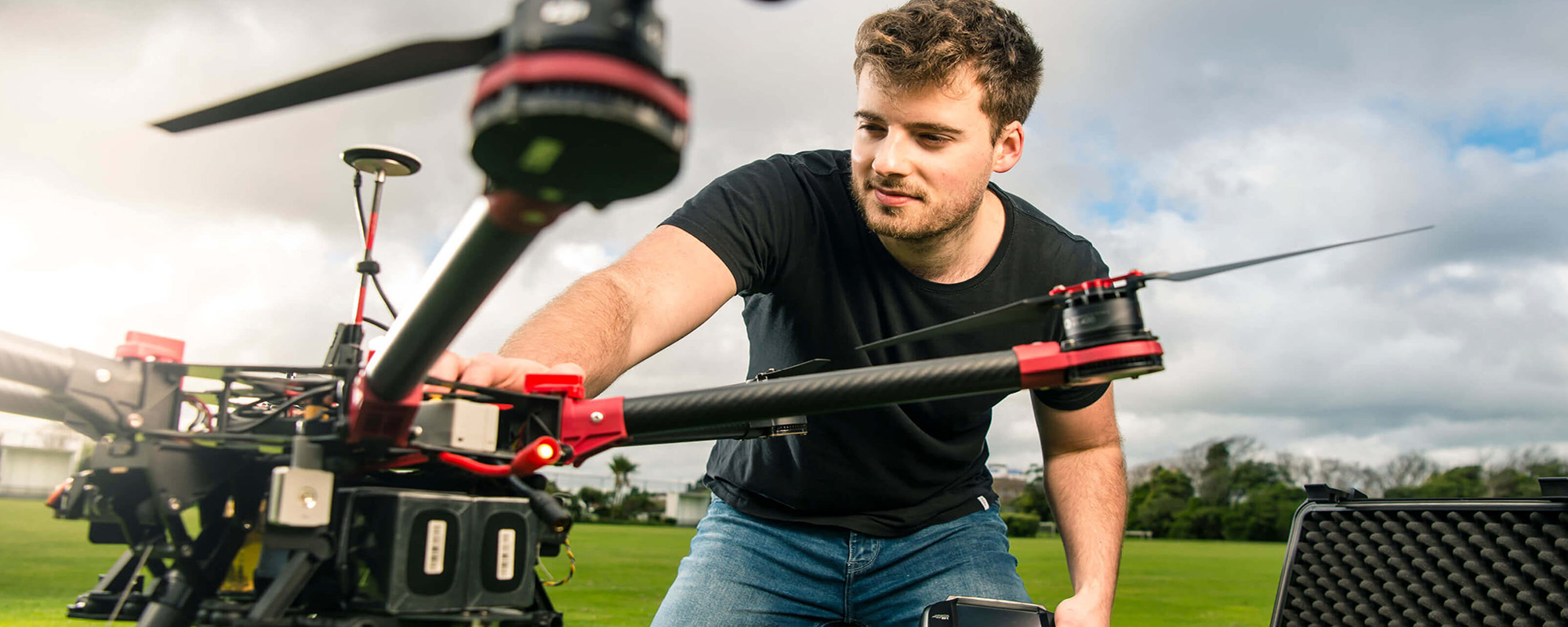Engineering
Complete your research degree at the Wellington Faculty of Engineering—join a school with an international reputation in computer and electronic engineering.
As a postgraduate student at Te Herenga Waka—Victoria University of Wellington, you’ll participate in cutting-edge research into technologies designed for the modern digital world. Research students have opportunities to travel to international conferences, establishing life-long networks with colleagues in top global institutions.
Specialist areas
The Wellington Faculty of Engineering has an international reputation in communications and signal processing, artificial intelligence and evolutionary computation, and programming languages. We have developed audio coders used in internet telephony and monitored the Antarctic ice sheets with magnetic resonance. We have also been involved in the creation of foetal heartbeat monitors, stroke rehabilitation devices and sensor networks for monitoring earthquakes and pollution of waterways.
Take advantage of the latest equipment, including specialised facilities for work in electronics, grid computing, high-performance computing, reconfigurable networking and robotics.
I knew that the academics in the School of Engineering and Computer Science carry out some pretty fascinating research and, besides the technical side, I was also attracted by the environment in our department.
Research strengths and supervision areas
Research is a big focus of our work and a diverse range of projects are under way at any one time, including investigations into:
- artificial intelligence, machine learning, evolutionary computation
- big data, data mining, data analytics
- chemical and material engineering research
- cloud and grid computing
- computer graphics
- computer vision, image processing and visualisation
- cyber security, network and software security
- electronic materials and roebel cables
- engineering and computer science education
- high-temperature superconductivity
- human-computer interaction
- instrumentation, electronics and mechatronics
- magnetic resonance imaging (MRI) systems
- mechatronics and robotics
- membrane separation technology
- programming languages
- renewable energy and smart power systems
- scheduling, combinatorial optimisation, operations research
- signal and audio processing
- software defining networks
- wireless communications and networking.
Within the Faculty, you can work with specialised research groups in the School of Engineering and Computer Science, and in two research centres—the Computational Media Innovation Centre and Paihau—Robinson Research Institute.
Research degrees
The Faculty offers a PhD degree in all the above research areas and two types of Master’s by research degrees in six different subject areas. At the same time, the University encourages innovation by thinking beyond traditional subject boundaries. You can take an interdisciplinary approach to your research—combining ideas or methods from other subjects within the University or collaborating with an international university.
Supervisors
All research students have an academic supervisor to guide and mentor them. If you are applying for admission to a research degree, you can start your own search for a supervisor or get in touch with the School of Engineering and Computer Science's postgraduate coordinator. Alternatively, you can explore possible supervisors in the Faculty's two research centres—the Computational Media Innovation Centre and Paihau—Robinson Research Institute.
Research centres
Our research students may have the opportunity to work with one of two specialised research centres.
Computational Media Innovation Centre
Computational Media Innovation Centre aims to attract world-leading entrepreneurial academics to New Zealand to foster cutting-edge research and university.
Robinson Research Institute
The multidisciplinary Robinson Research Institute melds innovative engineering and applied physics to build advanced technologies for businesses worldwide.

